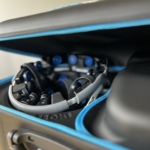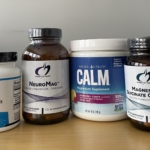Acid Reflux – More Than Just Too Much Acid
A New Look at A Common Condition by Dr. Litsey
What is Gastroesophageal Reflux? (also known as GERD)
The cells in the lining of the stomach produce gastric acid which helps facilitate the breakdown of food. This gastric acid is made of hydrochloric acid. The pH of gastric acid is between 1.5-2 which is more acidic than lemon juice. Acid reflux or GERD occurs when acid regurgitates from the stomach into the esophagus, irritating the lining of the esophagus and throat. Symptoms of acid reflux can be the classic burning sensation behind the chest or a lump in the throat sensation. It can also present as a sour taste in the mouth, phlegm or mucus in the throat, chronic clearing of the throat, cough, the sensation of a ball in the throat and burping after eating.
A Cause of Reflux not Often Considered
There is a sphincter called the lower esophageal sphincter (LES) that can be imagined as a door that closes between the throat and stomach. The door keeps acid contained in the stomach, preventing it from regurgitating into the throat after eating. In order for the LES sphincter to close, the stomach must reach a certain degree of acidity from adequate production of stomach acid. If insufficient acid is produced in the stomach, the sphincter remains open, allowing acid and the contents of the stomach to slosh back up into the throat. Low stomach acid is often overlooked as a cause of acid reflux.
Why Do We Need Stomach Acid?
Gaastric acid is essential for the proper digestion and absorption of food, especially digestion of proteins, minerals and B12. Long term conditions of low stomach acid can lead to imbalances in the whole digestive tract with symptoms of poorly broken-down food contributing to gas, bloating, and leaky gut. Poor digestion can also lead to conditions related to low mineral absorption, such as osteoporosis.
Acid not only breaks down our food but also provides defense against pathogens and infections. Long-term lowering of stomach acid can also lead to conditions such as H. Pylori infections, SIBO and imbalances in the ecosystem of the large intestine with symptoms such as constipation and diarrhea.
The Role of the Nervous System in Acid Reflux
The system that signals the release of stomach acid into the stomach is the nervous system. The nervous system connects the mind and body. There are two branches of the autonomic, or “automatic” nervous system.
- The parasympathetic activates under conditions of rest, safety and relaxation. It helps turn on the whole digestive system to break down and absorb food.
- The sympathetic activates under conditions of stress and mobilizes your body to prepare to run away or fight the current stressor or threat.
To increase stomach acid and promote the digestive process, the nervous system must be in the calm, “rest and digest” parasympathetic state. When this part of the nervous system dominates, it shifts the focus from the outside world to the inside world, giving your body the energy and resources it needs to facilitate the break down and absorption of food. The primary parasympathetic nerve that connects the mind to the stomach is the vagus nerve. (More about the vagus nerve, here)
When the “fight or flight” sympathetic nervous system activates, the body shifts its attention and energy to the outside world. Blood flow decreases to the gut, as does the output of acid and enzymes to digest our food. From a survival standpoint, your immediate safety is more important than digesting a meal. However, in our highly stressed culture, over time, chronically living in a stressed state decreases stomach acid and other processes that are needed to digest our food. A major contributor of low stomach acid is stress.
Common Treatments for Acid Reflux
Often patients come into the office already taking acid lowering medications such as proton pump inhibitors (PPIs) and H2 blockers. These medications further decrease stomach acid production to control symptoms and there are often side effects to long term use.
A Naturopathic Approach to Acid Reflux
1) Ease Inflammation & Irritation
The first step in addressing acid reflux is to decrease the discomfort and pain caused by acid irritating the lining of the throat — as well as to begin the healing process of that tissue.
- The most common way to do this is by utilizing demulcent herbs which help soothe and heal burned and irritated tissues.
- It is also important to remove foods in the short term that are triggering the symptoms of acid reflux, such as high fatty foods, acidic foods like citrus, coffee or alcohol.
2) Remove Obstacles & Create the Conditions for Healing
The second step is to create an environment and the conditions for the body to heal itself.
- Practicing mindful eating by chewing food slowly, smelling food before eating, eating in a relaxed state away from the stressful distractions.
- Thanks to the role of the nervous system, discussed above, identifying and removing stressors is essential for long term resolution of acid reflux.
- The parasympathetic nervous system can also be supported with herbs and by establishing daily habits.
- Working together with your practitioner, you may begin tapering off acid-lowering drugs while supporting with herbs to avoid rebound symptoms of acid reflux.
3) Identifying the Root Cause of Acid Reflux
The third step is to work on understanding the root cause or other contributing factors leading to the symptom of acid reflux.
- Ruling out deficiencies in zinc which is a required nutrient for stomach acid production.
- Identifying foods that the body does not digest well using Food Intolerance Testing.
- Assessing for structural drivers of acid reflux such hiatal hernias.
- Ruling out conditions such as hypothyroidism that have low acid production as a symptom.
- Other root causes include stress, smoking, food hygiene, pregnancy and the use of certain medications.
4) Restoring Acidity
The final step is to support the body by restoring proper acidity in the stomach.
- Supplements such as Betaine HCL and herbs such as Gentian / Skullcap are utilized to help increase stomach acid and close the door (lower esophageal sphincter) between the throat and stomach.
The causes and contributors to reflux are more complex than simply reducing stomach acid. At Boulder Natural Health, we offer a holistic, whole-body approach for a more permanent solution.
Book an appointment for an individualized assessment with Dr. Litsey.




